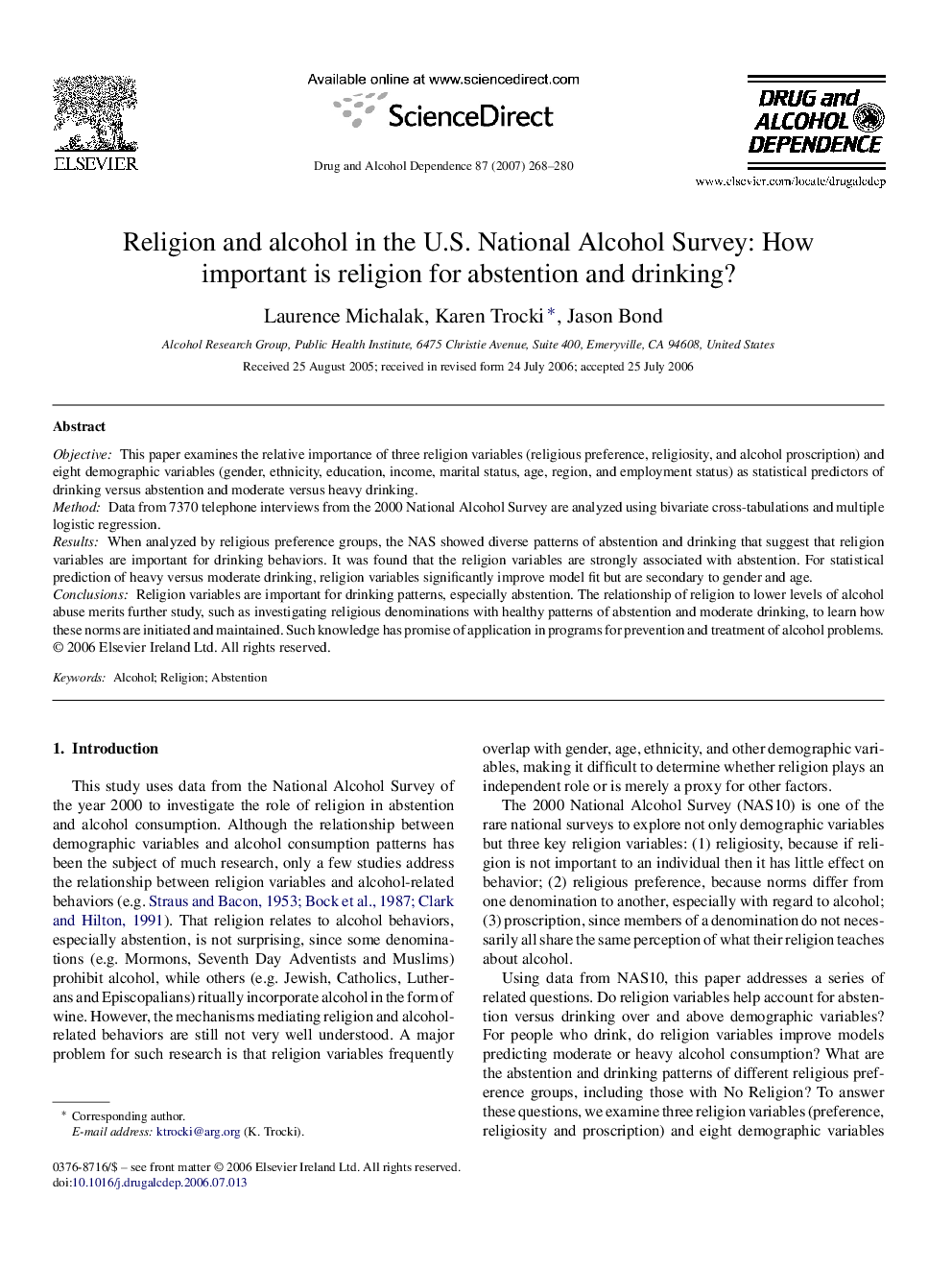| Article ID | Journal | Published Year | Pages | File Type |
|---|---|---|---|---|
| 1071320 | Drug and Alcohol Dependence | 2007 | 13 Pages |
ObjectiveThis paper examines the relative importance of three religion variables (religious preference, religiosity, and alcohol proscription) and eight demographic variables (gender, ethnicity, education, income, marital status, age, region, and employment status) as statistical predictors of drinking versus abstention and moderate versus heavy drinking.MethodData from 7370 telephone interviews from the 2000 National Alcohol Survey are analyzed using bivariate cross-tabulations and multiple logistic regression.ResultsWhen analyzed by religious preference groups, the NAS showed diverse patterns of abstention and drinking that suggest that religion variables are important for drinking behaviors. It was found that the religion variables are strongly associated with abstention. For statistical prediction of heavy versus moderate drinking, religion variables significantly improve model fit but are secondary to gender and age.ConclusionsReligion variables are important for drinking patterns, especially abstention. The relationship of religion to lower levels of alcohol abuse merits further study, such as investigating religious denominations with healthy patterns of abstention and moderate drinking, to learn how these norms are initiated and maintained. Such knowledge has promise of application in programs for prevention and treatment of alcohol problems.
